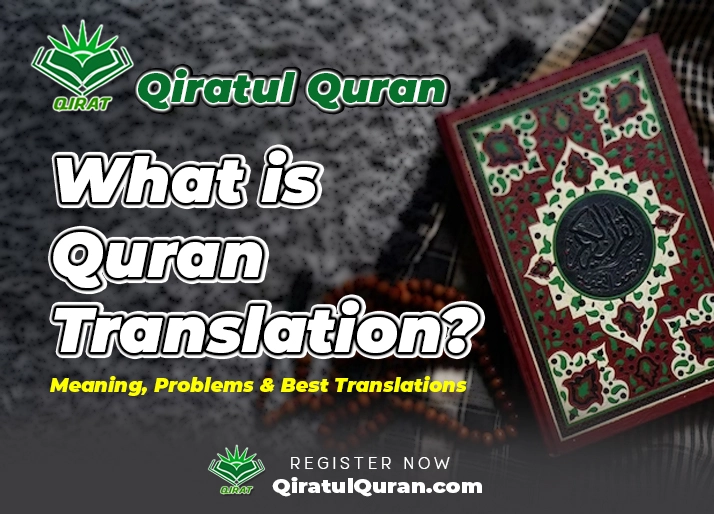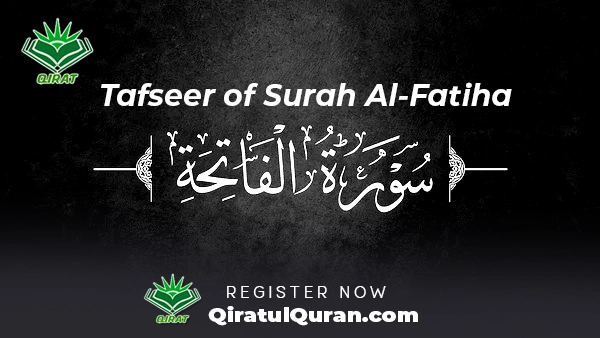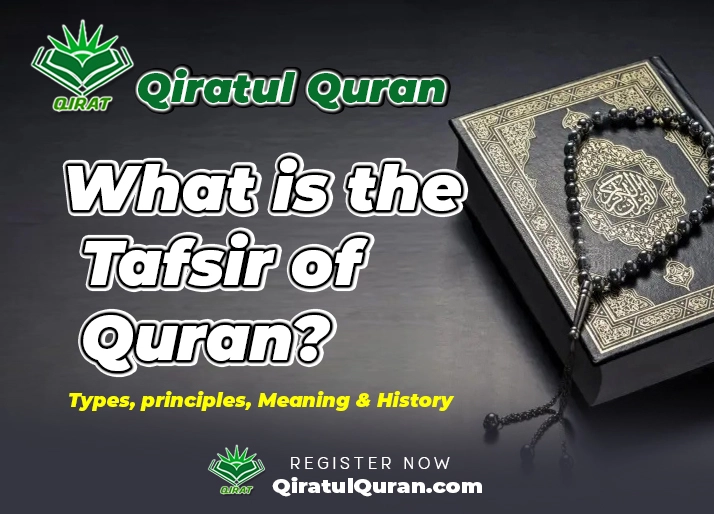
What does Quran translation mean?
The Quran is the central religious text of Islam, believed by Muslims to be the direct word of God as revealed to the Prophet Muhammad S.A.W between 610 and 632 CE. A Quran translation refers to a rendering of the Arabic text of the Quran into another language, such as English, to make it more accessible.
Translating the Quran poses many challenges due to the poetic nature of the Arabic text and the theological significance it holds for Muslims. Great care must be taken to convey the meaning accurately while preserving the beauty and resonance of the holy book.
What does Qurʾān literally translate to?
The word “Qurʾān” itself translates literally as “recitation.” This refers to the fact that the prophet Muhammad S.A.W would recite the revealed verses aloud, and his followers would then memorize and record them. Over time, these recordings were compiled to create the written text of the Quran that exists today.
So a literal translation of “Qurʾān” is “the recitation,” reflecting the oral origins of Islam’s central scripture. This recitation, according to Islamic belief, consisted of the very words revealed by God to Muhammad S.A.W through the angel Gabriel.
The Significance of Recitation in Islam
Recitation holds deep spiritual meaning in Islam. Muslims believe the Quran must be recited in its original Arabic form to fully convey its divine nature. Great emphasis is placed on memorizing and properly reciting Quranic verses, which are melodically chanted during worship. Even in translation, Muslims treat the Quran as sacred and worthy of reverence.
What are the problems with translation of the Quran?
Several key issues make translating the Quran exceptionally difficult:
Preserving the Original Meaning
The Arabic of the Quran has rich depths of meaning, symbolism, and literary devices that are woven tightly within its verses. Much of this resonance can be lost in translation if not handled skillfully. There are always trade-offs between accuracy, clarity, and maintaining the spirit of the text.
Grammar and Word Choice
Classical Arabic has a remarkably complex grammar system. Translating some of its verb forms, clause structures, and word choices into cleanly readable English is challenging.
Literary and Poetic Features
The Quran utilizes various literary features like rhyme, rhythm, and repetition to create its uniquely impactful style. These stylistic qualities are essentially impossible to carry over fully into English or any other language.
Interpretation Differences
There are inherent differences in how words and phrases of the Quran will be interpreted and rendered by the translator. More interpretation equals more of the translator’s perspective being infused into the translation.
Which Quran translation is best?
There is no definitive “best” translation of the Quran universally agreed upon. However, here are a few highly respected translations to consider:
Saheeh International
First published in 1997, this is one of the most popular modern English translations, praised for its readable contemporary language while remaining faithful to the original Arabic.
Muhammad Asad
First published in 1980, Asad’s translation stands out for its explanatory footnotes. Asad references classical Quran commentaries to elucidate verses and provide historical and cultural context.
M.A.S. Abdel Haleem
Published in 2004, Abdel Haleem’s Oxford World Classics translation is clear and easy to read while still beautifully conveying the eloquence of Arabic. An Arabic scholar, his rendition is firmly grounded in the classical foundations of the Quran.
Ultimately each translation has strengths and weaknesses, and personal preference plays a role. Comparing multiple translations can offer fuller insight into the rich meanings within the Quran.
Who wrote Quran translation?
The very first translations of the Quran were not Muslim at all, but non-Muslim European scholars sought to study Islam by rendering its sacred text into Latin and other European languages.
However, over time Muslims seeking to spread understanding of their faith to non-Arabic speakers began creating translations as well.
Notable Early Quran Translators
- Robert of Ketton – a 12th-century scholar who produced the first known translation into a European tongue (Latin) in 1143 CE.
- Andrei Bobovius – a Russian orientalist; published an early German translation in 1647 CE.
- Alexander Ross – Scottish clergyman; first complete English translation in 1649 CE.
- George Sale – English scholar; most popular English translation of the 18th century published in 1734 CE.
In the 20th century, prominent Muslim translators like Muhammad Marmaduke Pickthall, Abdullah Yusuf Ali, and Muhammad Asad created widely read and respected translations of the Quran tailored to the modern English reader.
Is a translated Quran holy?
Most Muslims view translations of the Quran with immense respect but do not grant them the same sacred status as the original Arabic. Muslims believe that the Quran was revealed by God in a specific Arabic dialect, and that dialect must be preserved intact for the Quran to retain its divine nature. Translations inevitably lose some of the original meaning, eloquence, and resonance.
However, as Islam spread worldwide translations became vital to share the message with non-Arabic speakers. So Muslims regard the study, sharing, and recitation of reverent Quran translations as an honorable way for more people to access its guidance, but not as a fully equivalent substitute for the Arabic Quran.
Treatment of a Quran Translation
Devout Muslims will treat physical printed copies of Quran translations with care – handling gently, keeping them off the floor, avoiding contact with unclean substances, and disposing by shredding or burning them when old. However, this reverence stems more from the verses and surahs it conveys rather than the sanctity of the translation itself.
Which Quran translation is easy to understand?
Here are two Quran translations in modern English praised for clarity and ease of comprehension:
Clear Quran Translation
Published in 2014, Clear Quran prioritizes accessibility through simple vocabulary and phrasing while preserving accuracy. Clear structuring and formatting also enhance readability. An audio recording is also available to follow along.
Saheeh International
As mentioned previously, Saheeh International first published in 1997 has earned recognition for its smooth readability mirroring normal English vernacular. It avoids archaic or obscure terminology, making comprehension straightforward even for young or non-Muslim audiences.
Both these translations utilize clean, contemporary language while consulting classical exegeses to ensure faithfulness to original meanings – creating an understandable and authentic bridge to the Quran.
How long does it take to complete the Quran with Translation?
For an attentive reader studying both Arabic and English translations, along with commentary, completing the full Quran at least once typically takes between 60-120 hours.
This estimate will vary based on reading speed, level of contemplation given to each verse, cross-referencing multiple sources, and time devoted per study session.
Studying in depth with a religious scholar or class would fall at the longer end and casual individual reading at the shorter end. Completing it for sheer reading fluency without deeper analysis would occupy the minimum timeframe.
During Ramadan many practicing Muslims will set the goal of completing the entire Quran’s reading within the 30 days, often splitting it into daily segments after fasting periods. This faster pace focuses more on overall completion than study.
Who reads Quran the best with Translation?
Some noteworthy reciters of the Quran lauded for melodious voice and skill with both Arabic and English translations include:
Mishary Rashid Alafasy
- Immensely popular Quran recitation channel on YouTube.
- Beautiful resonant voice with perfected Tajwid rules.
- Closed caption translations in English and other languages.
Sheikh Sudais
- Head imam of the Grand Mosque in Mecca, Islam’s holiest site.
- Emotionally powerful and nuanced recitations.
- Clear English translation accompaniments.
Mufti Menk
- Influential Islamic scholar with an engaging teaching style.
- Fluent in English and Arabic.
- Skilled at clarifying meaning alongside recitation.
Their recordings blending eloquent recitation with erudite translation provide enriching understanding for non-Arabic listeners.
How many Quran translations are there?
There are dozens of unique Quran translations into English alone, with countless more for languages like French, Russian, Malay, Chinese, and others.
Conservatively estimating, there exist over 100 distinct and complete translations of the Quran globally across languages ranging from Albanian to Xhosa. Partial translations confined to select chapters exist for yet more languages.
The earliest translations arose in the 17th century CE, with activity continuing up through the 21st century. The spread of Islam across linguistically diverse lands created ongoing motivation to convey the Quran’s message into new tongues.
Is the Oxford Quran translation good?
Published by Oxford University Press, The Qur’an: A New Translation by religious scholar M.A.S. Abdel Haleem is considered one of the most respected modern English translations.
Some merits include:
- Fluent, readable English avoiding archaisms.
- Notes cultural contexts of verses.
- Well-printed with the index for navigating.
- The translator has strong Arabic & Quranic grammar expertise.
- Balances accuracy with literary eloquence.
Both Muslim and non-Muslim reviewers consistently praise its language flow, contextual enhancement, and meticulous crafting by a leading academic mind.
While not without its critics, it stands as an excellent single-volume introductory translation for general readers.
Forbidden translation of the Quran That we should avoid reading?
Most controversially, some deem the earliest Latin translations like Robert of Ketton’s 12th century CE rendition or Alexander Ross’s 1649 CE English version as forbidden. Since they were created by non-Muslims without spiritual reverence to the source material, errors were more likely introduced.
However, few modern translations are deemed wholly unacceptable by mainstream Muslim authorities. Some important guidelines:
What Makes a Translation Forbidden?
- Distorting meanings significantly from accepted exegeses.
- Introducing blatant misinterpretations or alterations.
- Displaying contempt/disrespect for the sanctity of content.
While numerous mediocre translations exist, as long as the effort is made towards faithfulness & respect, translations are rarely wholly forbidden. However, introducing changes rooted in animosity towards Islamic belief would readily cross that line for most.
Conclusion
In closing, translating the magnificently nuanced Arabic poetry of the Quran into any other language poses profound challenges. No translation can perfectly capture every grammatical and literary subtlety woven within its verses. However, respectful attempts to convey its essential meaning and wisdom in other languages have value for spreading accessibility. When handled with care by qualified scholars, readers can engage with the beauty and messages which have inspired generations of Muslims to uplift humanity.




